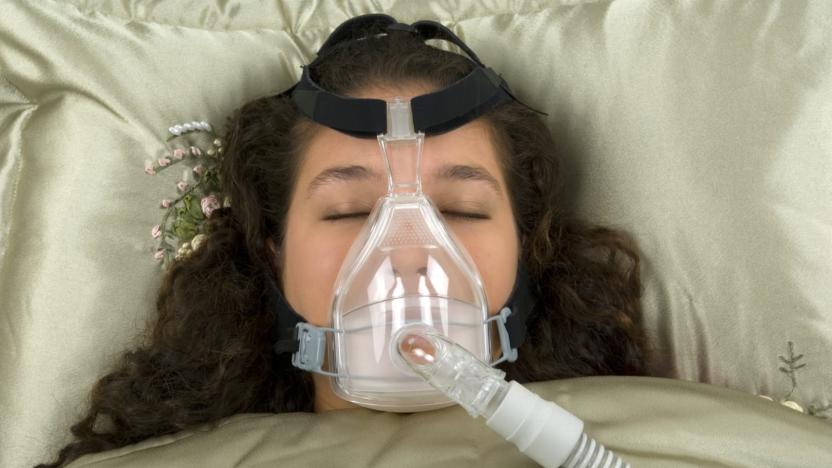sleepapnea
Latest

DeepHeart AI IDs sleep apnea, hypertension via Apple Watch
Your Apple Watch can tell if you have hypertension or sleep apnea -- with the help of Cardiogram's deep neural network, DeepHeart, that is. The app-maker and the UCSF Health lab have conducted a study proving that wearables can suggest the presence of hypertension and sleep apnea with 82 percent and 90 percent accuracy, so long as they come equipped with heart rate sensors and accelerometers. And, yes, they're not just talking about Apple Watch, but also Android Wear devices, Garmins and Fitbits.

FDA clears implant that treats severe sleep apnea
Sleep apnea (where your brain doesn't properly send breathing signals while resting) is horrible enough by itself, but the solutions to it can be scary: you may have to take medication, rely on ungainly breathing machines or opt for invasive surgery. You might have a gentler treatment going forward, though. The US Food and Drug Administration has approved an implantable device, Respicardia's Remede System, that fights more serious cases of sleep apnea.

IBM's iOS sleep-tracking app is powered by Watson
Are your poor sleeping habits messing up your day-to-day life? If you own an Apple Watch or iPhone, you can find out with the SleepHealth app from IBM Watson. The app is the first for IBM's Health Cloud, a program it launched last year with Apple and Johnson & Johnson. The idea of the program is to collect data for users, researchers and doctors using Apple's open-source ResearchKit and the sensors in iOS devices. SleepHealth, which IBM is doing with the American Sleep Apnea Association, is aimed at studying how sleep quality affects productivity, alertness, medical issues and overall health.

Robotic bear pillow stops your snoring by gently mauling your face (video)
Looking to stop snoring? What you need is Jusui-Kun, a robot bear that paws your face while you're sleeping. Okay, it's more of a "gentle tickling," according to the bear's creators. The key is to get the snorer sleeping on the pillow to move his or her head from side to side. Jusui-Kun has a built-in mic to detect the sleeper's snoring, while an equally cuddly hand monitor detects blood oxygen levels, letting the bear know when to issue one of its loving face swipes. Video after the break.

Researchers use wireless network to monitor breathing, could save lives
When Neal Patwari and his team of researchers developed a wireless network capable of seeing through walls, we assumed they were simply looking to cultivate their Alastor Moody-like superpowers. Turns out, they had far more important things on their minds. Patwari and his colleagues at the University of Utah have now penned a new study in which they demonstrate how their motion detecting technology could be used to monitor breathing patterns, as well, potentially enabling doctors to keep closer track of patients with sleep apnea or babies susceptible to sudden infant death syndrome (SIDS). To do this, Patwari reclined on a hospital bed and surrounded himself with 20 wireless transceivers operating at a frequency of 2.4GHz, as pictured above. He then timed his breathing at about 15 breaths per minute (the average rate for a resting adult), which he measured with his array of nodes and a carbon dioxide monitor. The engineer ultimately found that his system's algorithm could accurately measure respiration within 0.4 to 0.2 breaths per minute -- a relatively low error rate, since most monitors round off to the nearest full breath. Patwari says this development could offer a non-invasive and low-cost alternative to the devices used in most hospitals, and hopes to implement his technology into at-home baby monitors, as well. He acknowledges, however, that it will likely take at least five years before any of that happens -- so don't hold your breath. Full PR after the break.




